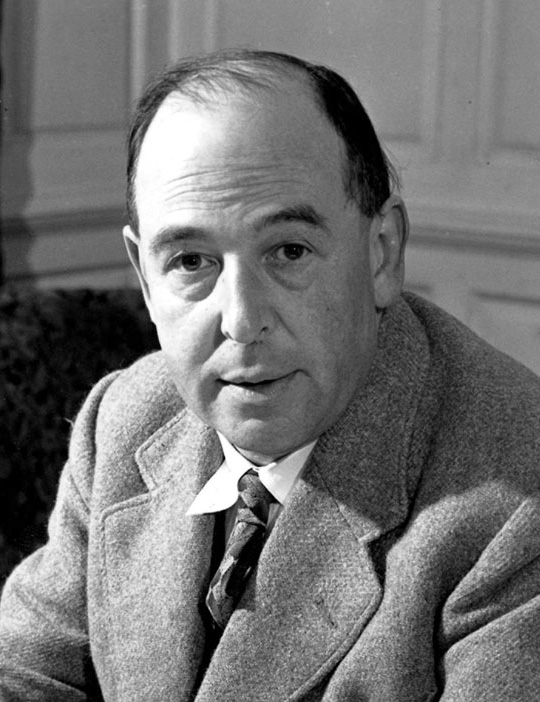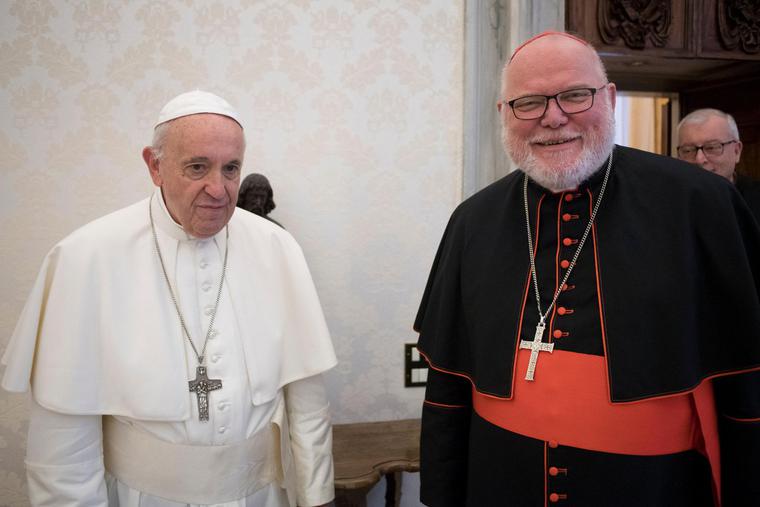No, not THAT Marx and the masses! Reinhard, Cardinal Marxist, the Mass, and the German schism.
By Fr Hugh Somerville KnapmanGiven the incomprehensible, indeed incredible, prohibition recently of so-called private Masses at St Peter’s in Rome, a fantastical rumour that turned out to be accurate (though the act is arguably illegal), the fears are not irrational. Yet one can hope they are unfounded. It would be a remarkable own-goal should an attempt to inhibit the old Mass be repeated. As Rome, including Pope Francis, is battling to avoid the schism that looms on the horizon with the upcoming German general synod, to forbid the old Mass would be to throw a match into the ammunition dump marked ”schism.“ For what good purpose? To champion the Ordinary Form of the Mass? To make the Mass the cause of schism would be as good as sacrilegious. If the Ordinary Form really needs such draconian measures to bolster its uptake then there is an elephant in the room that needs to be dealt with. Then we have the utter absurdity of portraying as divisive the Mass that served, united and nourished the western Church for a millennium and a half. There is a loud faction in the Church that cries for liberty in morals but rigid uniformity in liturgy.
The uniformity is not in the official rite of the Ordinary Form, but in its utility as an umbrella that covers a multitude of ”styles“ of celebration. With its indulgence of many and various official options within the rite, it effectively sanctions any option in practice because the operation of options has become normative. Gelineau was correct when he declared that, with the imposition of the new Mass, the Roman Rite was dead. We now have almost as many de facto rites as there are places where the Ordinary Form is celebrated. It is, in the truest sense of the word, anarchy. This is due to the new liturgy having made every priest his own pope with regard to the Mass. So often, narcissism runs close behind, both with the progressives and, more often than we might expect, with the trads and conservatives. What is there for real, enduring unity, in this chaos.
The problem is that in seeking to fix the problems we exacerbate them. The process manifests itself as but the latest in more than half a century of constant liturgical change. In seeking to correct the instability that now afflicts the liturgy, the repairers merely entrench the instability.
To be honest, I have never offered the old Mass, and have only once assisted in it as a minister. However, to portray the Mass that saw the Church through thin and thin (the thick was rarer than we think) for so many centuries as something to be derided, sneered at, and outlawed is, quite simply, an act of self-defeating insanity and stunning illogicality. Our liturgical and eucharistic spirituality and theology is mostly predicated on it. To deny it is, at bottom, to deny our own identity.
That said, I was raised with the new Mass. I am comfortable with a decorous vernacular (though the too-often trite banality of the first English missal and the Jerusalem version of the bible in most non-American lectionaries does not rate as decorous), and with an ars celebrandi that adhere to the rubrics. I value the enhanced role of the homily, though its potential is not adequately realised given some of the homilies I have heard in my 50-odd years. Simplification has offered real fruit, though it has unwittingly enabled vandalism in both ritual and architecture. Moreover, it is clearly not the Mass envisaged by the Fathers at Vatican II. To call it the Mass of Vatican II, even when celebrated properly, is to stretch credulity to breaking point. The closest we got to such a Mass was between 1964 and 1969. Yet it cannot be denied that ore than 2000 bishops, the overwhelming majority, sanctioned some degree of revision of the liturgy, and the Mass not least.
Thus, our conundrum. Reform was sanctioned, so whatever the reform that came to be dished up five years later is held up as demanding acceptance lest we reject Vatican II. The reformed rite is inescapably unstable, and every attempt to fix it risks aggravating the instability. The new Mass was portrayed as a liberalising, liberating reform that served the people, yet the people have abandoned it in steadily increasing numbers year on year. To shore it up, the illiberal and oppressive mechanism of forbidding almost any alternative has been employd.

In 1963 C S Lewis (above) published his Letters to Malcom, Chiefly on Prayer. Written in an Anglican context, it is remarkably prescient about the liturgical chaos that would soon be unleashed in the name of the Council that was then in session.
It looks as if they believed people can be lured to go to church by incessant brightenings, lightenings, lengthenings, abridgements, simplifications, and complications of the service. And it is probably true that a new, keen vicar will usually be able to form within his parish a minority who are in favour of his innovations. The majority, I believe, never are. Those who remain—many give up churchgoing altogether—merely endure.
Is this simply because the majority are hide-bound? I think not. They have a good reason for their conservatism. Novelty, simply as such, can have only an entertainment value. And they don’t go to church to be entertained. They go to use the service, or, if you prefer, to enact it. Every service is a structure of acts and words through which we receive a sacrament, or repent, or supplicate, or adore. And it enables us to do these things best—if you like, it ‘works’ best—when, through long familiarity, we don’t have to think about it. As long as you notice, and have to count, the steps, you are not yet dancing but only learning to dance. “A good shoe is a shoe you don’t notice. Good reading becomes possible when you need not consciously think about eyes, or light, or print, or spelling. The perfect church service would be one we were almost unaware of; our attention would have been on God.
But every novelty prevents this. It fixes our attention on the service itself; and thinking about worship is a different thing from worshipping…
A still worse thing may happen. Novelty may fix our attention not even on the service but on the celebrant. You know what I mean. Try as one may to exclude it, the question, ‘What on earth is he up to now?’ will intrude. It lays one’s devotion waste. There is really some excuse for the man who said, ‘I wish they’d remember that the charge to Peter was Feed my sheep; not Try experiments on my rats, or even, Teach my performing dogs new tricks.’
I can make do with almost any kind of service whatever, if only it will stay put. But if each form is snatched away just when I am beginning to feel at home in it, then I can never make any progress in the art of worship. You give me no chance to acquire the trained habit—habito dell’arte…
And anyway, the Liturgical Fidget is not a purely Anglican phenomenon; I have heard Roman Catholics complain of it too.
And that brings me back to my starting point. The business of us laymen is simply to endure and make the best of it. Any tendency to a passionate preference for one type of service must be regarded simply as a temptation. Partisan ‘Churchmanships’ are my bête noire. And if we avoid them, may we not possibly perform a very useful function? The shepherds go off, ‘every one to his own way’ and vanish over diverse points of the horizon. If the sheep huddle patiently together and go on bleating, might they finally recall the shepherds? (Haven’t English victories sometimes been won by the rank and file in spite of the generals?)…
I think it would have been best, if it were possible, that necessary change should have occurred gradually and (to most people) imperceptibly; here a little and there a little; one obsolete word replaced in a century—like the gradual change of spelling in successive editions of Shakespeare. As things are we must reconcile ourselves, if we can also reconcile government, to a new Book…
Yet we all want to be tinkering.
__________________________
”What on earth is he up to now?“ Indeed. That was my thought in the wake of the pope’s rejection of Cardinal Reinhard Marx’s resignation a few weeks back. The jarring note as it was publicly announced was the lack of an equally public acceptance of it by the pope. Why wasn’t it announced after it had been accepted? Why announce a resignation before it is signed, sealed, delivered…and accepted? There was the whiff of PR spin and strategising about it all.

So it was no surprise when the pope’s equally public refusal to accept the resignation was released. It had the look of a cynical charade. This is not the look the Church needs now. Tactically, it strengthens Marx’s hand in the upcoming German Synod, which seems to have the potential to provoke a schism of the sort we have not see for a long time.
However, there could be deeper levels to all this, not obvious, and perhaps unexpected. One could see the pope’s refusal to allow Marx to jump ship now as a way of making him take primary and active responsibility for the outcome of the synod: you started this mess, you finish it. This is not so fanciful given Cardinal Kasper’s recent expression of alarm at the direction the German synod is taking. Kasper is no conservative. He is very much a Pope Francis man. It is almost inconceivable that Kasper spoke without some consultation with Pope Francis. In a sense, Kasper may been an unofficial papal spokesman in advance of the synod. It is an indirect warning shot across the synodal bow.
Moreover, given the references to the child abuse crisis in the German church, it is not inconceivable that Pope Francis is not allowing Marx to evade facing the music for the German church’s misdeeds. As bishop of Trier, Marx did not cover himself in glory in his response to allegations of abuse. While he is still in place as archbishop of Munich Marx cannot pass the buck to a hapless successor.
So while one cynic might see the recent papal-Marxian manoeuvres as a ploy to strengthen Marx’s hand at the synod, another cynic might wonder if the pope is at best forcing Marx to take responsibility for his various decisions, or even setting him up as a fall guy when the synod goes feral and the abuse crisis goes bang.
So be it the machinations on the Mass or Marx’s ecclesiastical manoeuvres, with Lewis I am left wondering, what are they up to now?

No comments:
Post a Comment
Comments are subject to deletion if they are not germane. I have no problem with a bit of colourful language, but blasphemy or depraved profanity will not be allowed. Attacks on the Catholic Faith will not be tolerated. Comments will be deleted that are republican (Yanks! Note the lower case 'r'!), attacks on the legitimacy of Pope Leo XIV as the Vicar of Christ, the legitimacy of the House of Windsor or of the claims of the Elder Line of the House of France, or attacks on the legitimacy of any of the currently ruling Houses of Europe.